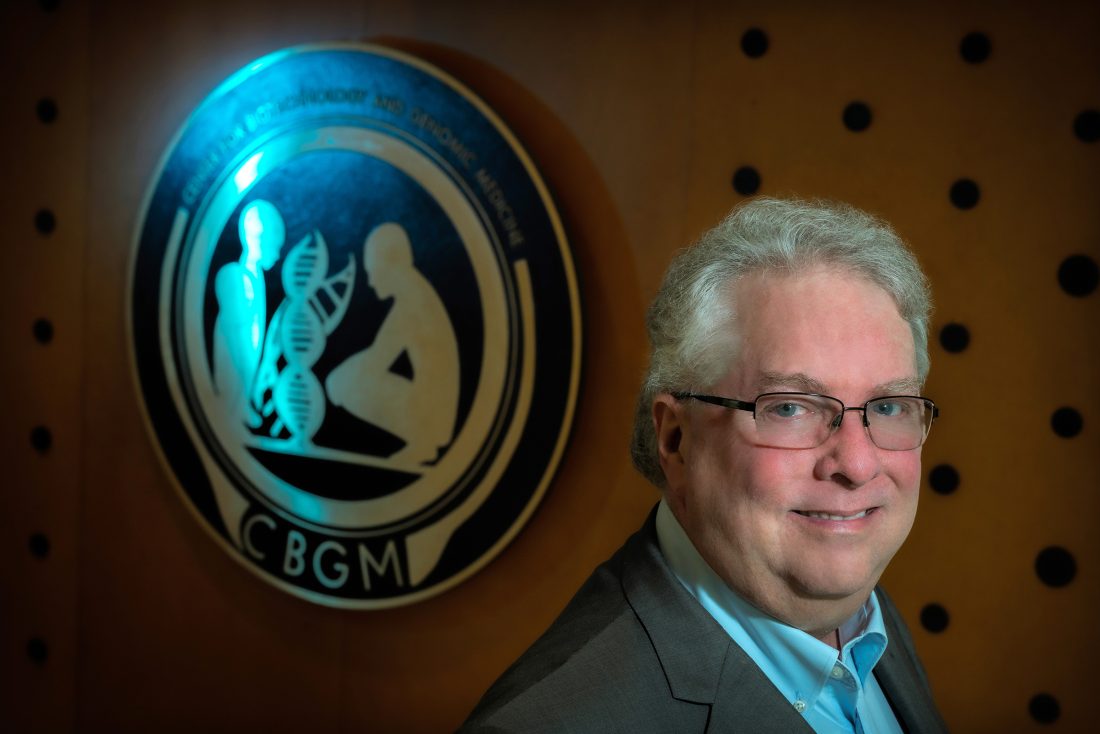Dr. Richard McIndoe, a bioinformatics expert who for nearly two decades has served as associate director of the Center for Biotechnology and Genomic Medicine at the Medical College of Georgia at Augusta University, is the center’s new director.
McIndoe, who is also a Regents’ Professor in the MCG Department of Obstetrics and Gynecology, assumed his new role Oct. 1.
He is principal investigator on several multimillion dollar federal grants, including a new $6.2 million initiative to support highly innovative research ideas in three areas with tremendous impact on health. The Innovative Science Accelerator (or ISAC) program establishes an expedited but still extensive review process that enables scientists to pursue some of their most innovative research ideas in diseases of the kidneys, the urinary tract in both sexes as well as the male reproductive organs, and the blood and bone marrow.
The goal is to move science forward that matters to people’s lives, and the opportunities include giving particularly new scientists experience writing grants, going through the review process and generating findings.
Over the last 20 years, McIndoe has also directed the Coordinating and Bioinformatics Units for three national consortia funded by the National Institute of Diabetes and Digestive and Kidney Diseases. The Animal Models of Diabetic Complications Consortium had the primary responsibility of developing and characterizing animal models that mimic human diabetic complications, with the mission of creating these models and providing them, along with the data relevant to their characterization and the protocols used for their generation and analysis, to the scientific community. The consortium consisted of 13 Pathobiology Sites, one Mouse Generation and Husbandry Core and the CBU with investigators from 15 separate institutions across the United States.
The Mouse Metabolic Phenotyping Centers are charged with providing the scientific community with standardized, high-quality metabolic and physiologic phenotyping services for the mouse. The five centers nationwide provide state-of-the-art technologies to investigators for a fee.
The Diabetic Complications Consortium provides a cross section of support designed to move science and patient care forward, including funding short-term studies in animals or humans to better understand and prevent complications, the primary cause of diabetes-related deaths.
He also is a principal investigator on the nearly 20-year-old, federally funded The Environmental Determinants of Diabetes in the Young (or TEDDY) Study aimed at identifying how genetics and environmental triggers collide to cause type 1 diabetes.
McIndoe earned his PhD in immunology and molecular pathology at the University of Florida in 1991. He joined the MCG faculty in 2002 and in 2008 was recognized as an emerging research and development leader at a Georgia research university with a Georgia Research Alliance Distinguished Investigator Award.
 Augusta University
Augusta University




